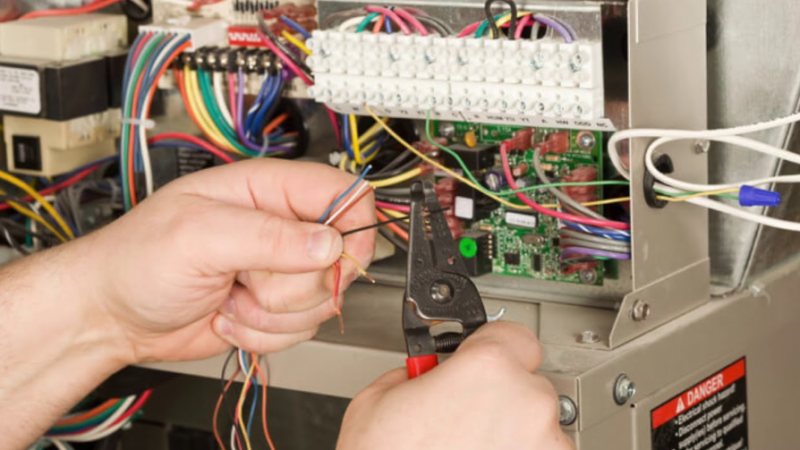Are Digital Business Cards Better Than Traditional Paper?

Introduction
Business cards have long been an essential tool for professionals looking to make connections. Traditionally, paper business cards have served as a physical representation of a person’s brand, allowing for quick exchanges of contact information. However, with the rise of digital technology, digital business cards have emerged as a modern alternative. This shift raises an important question: are digital business cards better than traditional paper business cards? To answer this, we must explore their advantages and limitations across various factors.
The Rise of Digital Business Cards
Digital business cards have gained popularity due to advancements in technology and the increasing need for contactless interactions. With the ability to share information via QR codes, email, or apps, digital cards provide a seamless way to connect without requiring physical exchanges. Professionals and businesses looking to stay ahead of the curve are rapidly adopting digital alternatives, seeing them as a more efficient and modern networking tool.
The Timeless Appeal of Traditional Paper Business Cards
Despite the growing adoption of digital business cards, traditional paper business cards continue to hold a strong position in professional networking. A well-designed paper card exudes a sense of personal touch and authenticity that some digital alternatives fail to replicate. Handing over a tangible business card can create a lasting impression, making networking feel more personal and genuine.
Convenience and Accessibility
Digital business cards provide an unmatched level of convenience. They can be stored on smartphones, shared with a single tap, and accessed instantly without worrying about running out of copies. On the other hand, paper business cards require carrying a physical stack and can be misplaced easily. However, some professionals still prefer the simplicity of exchanging paper cards without relying on devices or internet connectivity.
Environmental Impact
The environmental implications of paper business cards are significant. Traditional cards contribute to deforestation, printing waste, and pollution. Millions of business cards are discarded every year, adding to environmental concerns. Digital business cards offer an eco-friendly solution, eliminating the need for paper and reducing waste. Companies aiming for sustainability increasingly prefer digital options to align with their environmental goals.
Customization and Design Flexibility
While traditional paper business cards allow for creative design elements such as embossing, textures, and unique materials, they come with printing limitations. Digital business cards, on the other hand, offer limitless design possibilities, including animated logos, clickable links, videos, and personalized branding. This makes digital cards a more versatile choice for those who want to leave a dynamic impression.
Cost-Effectiveness
One of the biggest advantages of digital business cards is cost savings. Printing high-quality paper business cards can be expensive, especially when frequent updates are needed. Digital business cards eliminate printing costs and allow for easy modifications without additional expenses. For startups and entrepreneurs looking to minimize costs, digital business cards present a more budget-friendly option.
Networking Efficiency
Networking in the digital age demands speed and efficiency. Digital business cards streamline the process by allowing instant sharing and seamless integration with contact lists, social media, and CRM systems. Traditional paper business cards require manual entry of contact details, which can be time-consuming. However, some professionals argue that the tactile nature of exchanging paper cards fosters stronger connections and enhances memorability.
Durability and Lifespan
Paper business cards are prone to wear and tear, fading, or being lost over time. A digital business card, however, remains intact, easily retrievable, and always accessible. While a traditional business card may get damaged or misplaced, a digital card is stored safely on a device or cloud storage, ensuring long-term usability.
Security and Privacy Concerns
Digital business cards come with certain security risks. Cyber threats, hacking, and data breaches are potential concerns when sharing digital information. Some professionals worry about privacy issues, as sharing digital cards often involves third-party apps or cloud-based services. Paper business cards, in contrast, provide a direct exchange with minimal security concerns. However, proper encryption and secure sharing methods can mitigate these risks for digital users.
The Future of Business Cards
With the world increasingly shifting towards digital solutions, the future of business cards is likely to be hybrid. While digital business cards will continue to gain popularity due to their convenience, paper business cards will still hold their place in traditional networking scenarios. The key lies in choosing the right format based on personal preference, industry standards, and specific networking environments.
Conclusion
Both digital and traditional business cards have their own strengths and weaknesses. Digital business cards excel in convenience, cost-effectiveness, and sustainability, while paper business cards offer a personal touch and reliability. The choice between the two ultimately depends on individual needs, professional settings, and personal branding strategies. As technology advances, the best approach may be to embrace both formats and adapt them to different networking situations.





